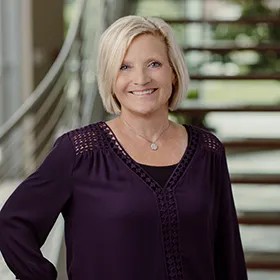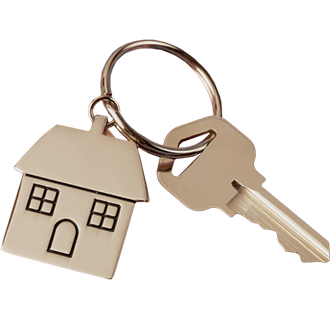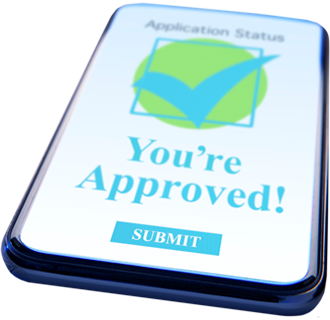Mortgage Loan Solutions
We offer guidance on diverse mortgage products, ensuring confidence as you navigate the home-buying process. With various home loan financing options, we work with you to help find the right product for your needs. Whether purchasing a new home, vacation property, or refinancing, we can help.
Not Sure Which Mortgage Loan1 Is Right For You?
Our consultants will take the guesswork out of which mortgage loan solution is right for you.
Conventional Loan
A conventional loan isn’t backed or secured by a government agency. It typically comes in several different term options, with the most popular being a 15 or 30-year fixed-rate loan. Whether you're a first-time homebuyer or a homeowner searching for more affordable refinancing options, a conventional loan may be the right fit.
Bridge Loan
A bridge loan allows you to borrow against the equity of your current home to use as a down payment on your new home. This can be a good option for those who can make mortgage payments on both properties and want access to the equity in the house they are selling.
Take-Out Loan
A take-out loan is a short-term mortgage that allows you to purchase a home before selling your current one.
Affordable Loan Options
NIFA
NIFA loans are designed for first-time home buyers whose income is below certain thresholds. These loans offer competitive interest rates and the potential for no down payment.
HomeReady®
HomeReady® loans are designed for homebuyers who are looking for a lower down payment option. Borrowers do not need to be first-time home buyers but do need to meet certain income requirements.
Federal Home Loan Bank (FHLB) Grants
Each year, FHLB makes a specific amount of grant funds available for first-time and non-first-time home buyers who meet specific criteria. These funds can be used for a down payment and/or closing costs.
Government Loan Programs
There are two main types of government loans: Veterans Affairs (VA) and Federal Housing Administration (FHA) loans. VA Loans are government-backed loans that offer highly competitive interest rates with little to no down payment required. FHA loans are guaranteed by the Federal Housing Administration.
- VA
- FHA
Jumbo Loan
A loan attains jumbo status when its mortgage amount surpasses conventional loan-servicing limits. Because of this, you'll need a favorable credit score since you are borrowing above the guaranteed guidelines set by the agencies. With a jumbo loan, the more cash you have for a down payment and the more money you have in reserve, the better. Opting for jumbo mortgages can be beneficial when acquiring primary residences and secondary or vacation homes.
Mortgage Experts Who Specialize in You



Online Mortgage Loan Inquiry
Once you're ready to begin the home loan process, we're here to help keep your loan on track. From pre-qualification to closing—you'll receive exceptional service form the very first conversation. Inquire for a mortgage loan today, it's simple!
- Click Inquire Now, create your account and complete the mortgage loan inquiry.
- When you have completed the inquiry form, click submit, and we will review your information to determine your eligibility.
- You can expect to be contacted by a mortgage loan originator within 1-2 business days to discuss your inquiry and give you the opportunity to address any questions.

Have These Questions Crossed Your Mind? Let Us Be Your Guide!
I’m a first-time homebuyer. What do I need to know?
Knowing where to start can seem daunting. One of our goals as mortgage officers is to educate you throughout the loan process to help you make informed decisions on the best loan.
One of your first steps should be to schedule a simple, no-obligation discussion with us over a phone call or in person. Here are some typical questions we'll talk through.
-
Are there any advantages to being a first-time homebuyer?
Yes, there can be! Depending on your income level, there are loan programs specifically for first-time homebuyers with low to moderate incomes. These programs offer low or no down payments, lower private mortgage insurance (PMI) rates, slightly lower interest rates and the potential for some down payment assistance grants in certain areas and for limited periods each year. Please get in touch with your mortgage loan originator for details to see if you qualify. -
Is my credit score good enough to purchase a home?
Generally, no credit score guarantees you will be approved for a mortgage loan. That said, the higher your credit score, the more loan options you may have. We can help determine if your score is at the right level to get a loan. If it's not, that's okay - we will get a plan together so you know what actions are needed to improve your credit score. -
How much do I need to put down on a home?
Many people think you can't buy a house without a 20% down payment, but there are mortgage options that allow for lower or even no down payment. A Security National Bank mortgage loan originator can help determine what works best for your finances and what loan programs you may qualify for. -
What parts of my finances does a lender review?
A lender will examine your credit score and history, debt-to-income ratio, and your checking and savings accounts balances. This helps them decide if you have the resources to manage your mortgage payments, taxes, and other home-buying costs. -
What are the benefits of getting pre-qualified?
Mortgage pre-qualification is a straightforward process that evaluates your income, debt, and credit information to estimate how much you can borrow. Here's how it helps:- Knowing your price range lets you target the right homes.
- You can make offers with the assurance that you can back them up.
- Understanding potential loan amounts, interest rates, and monthly payments helps you make the best mortgage decision.
What can I afford?
This may be one of your initial questions when you start shopping for a new home. There's an easy way to help find the answer: Calculate the size of the monthly mortgage payment, not the size of the house you might purchase. A mortgage loan originator can help with these calculations.
Step 1:
Multiply your gross monthly income by 0.25. Your gross monthly income is the total amount you earn before any taxes or deductions. If you’re purchasing with a spouse or partner, add both of your gross incomes together before multiplying. This equation equals 25% of that income. Most people consider this percentage of gross income comfortable, although each person's situation differs.
- Example: If you and your spouse earn $6,000 monthly, a manageable mortgage payment for most people is about $1,500 ($6,000 x .25).
Step 2:
Next, update your budget. Imagine that you were paying the amount from step 1 each month. List any debt payments such as student loans, car payments or credit card debt. Also include new expenses you'll have as a homeowner, such as homeowner's insurance, property taxes, maintenance or HOA (homeowners association) expenses.
Step 3:
Did the numbers that you put together work for you? If the monthly payments are too high for your budget, consider finding a less expensive home. If you are comfortable with the numbers or think you can afford more, you can adjust to a more expensive house.
If you want to keep your price range the same, you'll need to consider factors that reduce the size of your loan, reducing your monthly payment. Two factors include:
- Credit score: A 780 and above means you'll receive the most competitive interest rates. The higher the credit score, the more you can help to reduce the interest rate and your monthly payment on your new mortgage. If your credit score is on the lower end, you can work to improve it by reducing debt and paying bills on time.
- Down payment: A larger down payment will reduce the loan amount and your monthly payments. Consider the amount of funds you are comfortable saving towards the down payment each month and how long it would take to save the down payment you desire when considering this option. A mortgage loan originator can also show you what the monthly payments will look like for various down-payment scenarios.
What are the home purchase basics that I need to know?
Buying a home might be your most significant financial decision yet, so making informed choices and paying attention to the details is crucial. With the help of your Loan Originator and Real Estate Agent, the process can be seamless, enjoyable and rewarding.
Your Mortgage Loan Officer:
- Will help you choose the ideal loan that fits your needs and goals.
- Will keep you updated on your loan status.
- Will keep your Real Estate Agent updated on our loan progress. (Your personal information remains confidential between us; only progress updates are shared.)
- Will get you the appropriate loan at the best possible rates and fees.
Your Real Estate Agent:
- Will preview available homes to weed out overpriced or undesirable ones.
- Will present the homes that suit your needs as you've defined them.
- Will help you determine the difference between a "good buy" and a property that may have to be discounted if you decide to sell.
- Will secure the best possible deal for you. Armed with a Pre-Qualification letter from us, your Real Estate Agent can show that you're a qualified and capable borrower. This can significantly sway the seller and might be the deciding factor in them accepting your offer over others.
You:
- Will keep your Real Estate Agent updated on any questions or concerns as they arise.
- Will provide documentation and decisions as soon as possible to keep the process moving.
- Will enjoy purchasing your home, but remain objective to make the best business decisions for you.
- Will ensure you apply for pre-qualification as early as possible. This will give you the financial backing you need, allowing you to focus on choosing your home.
How much do I need to save for a down payment?
When considering a home, costs are at the top of your list. One of the most essential costs is the down payment. Here are some things to consider when saving for a down payment so that you can feel confident going into the mortgage process.
What is a down payment?
A down payment on a mortgage is the upfront payment you make when purchasing a home. It's calculated as a percentage of the total purchase price you pay upfront. The remaining balance is typically financed through a mortgage loan. The money you put down represents your initial investment in your home. Lenders like to make borrowing decisions they feel confident about, and a large down payment helps suggest to them that you're fully committed to the transaction. In return, a lender may offer you a lower mortgage interest rate.
How much will I need to save for a down payment?
The typical response is that you must pay at least 20% of the purchase price. The truth is that lots of people put down way less than 20%.
- In some instances, you may even be able to get a mortgage with as little as 3% - or even nothing – down.
- At various times of the year, first-time homebuyer grant programs are available to eligible buyers that can help with the down payment.
- IMPORTANT: If your down payment is less than 20% of your home's price, you will likely need to pay for mortgage insurance, which adds to your monthly costs. So, you may need to reduce your target home price if you plan to put less than 20% down. The minimum down payment required can vary depending on many factors. Talk to your mortgage loan originator about the different factors involved.
- Ultimately, your down payment will depend on how much you have in savings and what other things you might need that money for. It's okay to go with 20% down, and in certain circumstances, it's also okay to put down less or more. The best thing you could do is ask a Security National Bank mortgage loan originator for details on loan programs available to you, including how much down payment is required for each loan you may qualify for.
What do I need to provide my mortgage originator?
Necessary documentation varies from homebuyer to homebuyer and from loan to loan. The following is a list of the most common documentation requirements, though depending on your situation and the loan applied for more, less, or different documents may be requested.
Identification
- Driver's license
- Social Security card
- Proof of veteran status (for VA loan only)
Employment & Income
- Pay stubs: last 30 days
- W2 forms: most recent two years
- Federal income tax returns: most recent two years
- Child support/alimony: court order or 12-month canceled checks or bank statements showing consistent deposits if you wish it to be considered
- Award letters: Social Security, pension, disability, etc.
- Written explanation: if employed less than two years or if there's been a gap in employment the last two years
Self-Employment
- Business tax returns: most recent two years (personal, partnership & corporate), all schedules
- Year-to-date profit & loss: including previous two years
- Business bank statements: most recent two months
Assets
- Bank statements: most recent two months for all accounts listed on the application (Example: checking accounts, savings accounts, CDs, money market accounts, etc.)
- Retirement funds: most recent quarterly statement if retirement income is being used for qualifying
- Other investment: most recent quarterly statement if closing funds are coming from an investment account
- Large deposits: documentation for large deposits outside of payroll appearing on the bank statements (definition of a large deposit varies by loan program)
- Gift letter: if part of the down payment is coming from a gift, provide a gift letter stating the funds will not need to be repaid (your lender can provide you with a letter template)
Property Ownership
- The most recent mortgage statement
- Property tax bill
- Copy of homeowner's insurance binder and bill
- Verification of homeowner association (HOA) dues
- Copies of current leases for rented units
Home Financing Do's & Don'ts
Do's for Successful Financing
- Get a pre-qualification letter from Security National Bank.
- Maintain your current job and income.
- Protect your credit score and continue to make all payments on time.
- Avoid large purchases.
- Record all bank transactions, especially large deposits and transfers between accounts.
- Respond promptly to all requests to provide documentation, sign documents, answer questions, etc.
- Remain available and reachable throughout the entire mortgage process.
- Call your mortgage loan officer anytime you have a question.
Don’ts to Ensure a Smooth Mortgage Process
- Apply for a new credit card, open new credit accounts or close currently open credit accounts.
- Have your credit pulled by other creditors.
- Make any employment or compensation changes without notifying your mortgage loan officer.
- Co-sign with anyone else for a home, auto, or any other type of debt.
- Open new bank accounts, close existing bank accounts, or move large amounts of money between accounts.
- Deposit large amounts of cash without consulting with your loan officer to discuss requirements regarding paper trails and eligibility for use as funds for closing.
- Change banks or move significant assets to other bank investment companies.
Home Loan Milestones
Our goal throughout your home loan process is to keep you informed every step of the way. As things progress, you can expect to hear from us each time your loan reaches one of these key milestones.
1. Here we go!
Once your offer on a home has been accepted, you will complete a mortgage inquiry to begin the application process. Within three business days of submitting your application, you will receive a disclosure package and a loan estimate, including important loan information, such as the total cost of the loan, the interest rate offered, estimated monthly payments and expected closing costs
2. The appraisal is ordered
Once you have signed the disclosures and we’ve received your intent to proceed, your appraisal will be ordered. The appraiser will schedule a visit to the home, complete the appraisal report and submit all required documentation.
3. Your loan goes to processing
Once all documentation has ben collected, our loan processors will review everything for completion and accuracy, and request any additional paperwork that may be needed.
4. Final approval is received
The underwriter will have finished reviewing the entire loan package to determine whether your loan meets the guidelines for approval. Once approved, the loan will be sent to closing.
5. Congratulations, it’s time to close!
It’s time to schedule a closing appointment. At least three business days prior to your appointment, you’ll receive your closing disclosure that will outline your loan terms and how much money you will need to bring to settlement. Once documents have been signed, funds will be distributed and ownership of the property will be transferred from the current owners to you - making the house officially yours!
Mortgage Calculator
Use this calculator to determine your monthly payment and amortization schedule.

Personal Loans
Empowering your ambitions, let's find the right loan for you. Get the home equity line of credit, home equity, vehicle, or unsecured loan you need.


